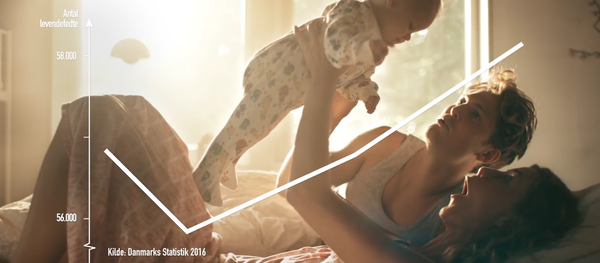"Testosterone plays a role in everything that defines a man," Anna-Maria Andersson, the head of research at the hormone lab at Rigshospitalet's Department for Growth and Reproduction and co-author of the study, told the Danish scientific portal Videnskab.dk.
By contrast, though, the transition from being married to being single was found to be accompanied by the smallest drop.
"This is quite amusing and it provides a good picture of how much our hormones are impacted by how we live. The body adapts itself to the situation we find ourselves in," Anna-Maria Andersson said.
Testosterone plays a key role in the development of male reproductive tissues, as well as promoting secondary sexual characteristics such as increased muscle and bone mass, and the growth of body hair and a beard — all of which are associated with masculinity.
Incidentally, the words "marriage" and "poison" are almost homonyms in the Nordic languages, which spurred Swedish writer August Strindberg into using this pun in his 1884 short story collection "Getting Married" (whose name in Swedish can also be interpreted as "Getting Poisoned"). The latest discovery by the Danish researchers shed some light on the reason for this linguistic oddity.
"On #Ibsen's desk stood a photo of #Strindberg. After gazing at it, Ibsen said 'There is one who will be greater than I'" @RebeckaKlette pic.twitter.com/70lgkOrSSX
— Henning Hansen (@bookhistories) February 5, 2017
In addition to marriage, however, other lifestyle factors, such as aging, being overweight, physical and mental stress and lack of sleep, are known to adversely affect testosterone levels.
Never miss a story again — sign up to our Telegram channel and we'll keep you up to speed!




